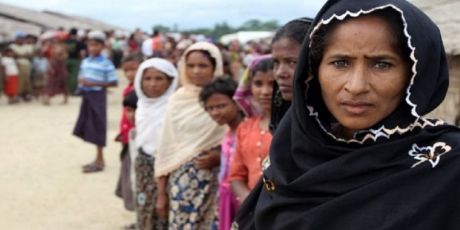- About
- Topics
- Story
- In-Depth
- Picks
- Opinion
- News
- Donate
- Signup for our newsletterOur Editors' Best Picks.Send
Read, Debate: Engage.
| topic: | Discrimination |
|---|---|
| located: | India |
| editor: | Hanan Zaffar |
After a surprising outcome in India’s recent election, where the Hindu nationalist Prime Minister Narendra Modi did not secure an outright parliamentary majority, there were high hopes for reduced religious extremism.
However, Modi’s right-wing Bharatiya Janata Party (BJP) secured a third term with the help of allied parties and formed the government in June. Shortly after, India witnessed a disturbing rise in anti-Muslim violence, with mobs lynching dozens of Muslims.
On 7 June, in the central Indian state of Chhattisgarh, two Muslim men were lynched by a Hindu right-wing mob over allegations of cattle smuggling. A third victim died from his injuries a few days later.
On 18 June, in India’s most populous state, Uttar Pradesh, a Muslim man was beaten to death by a mob. A video surfaced on social media showing individuals armed with sticks cornering and brutally assaulting him. In response to this incident, local BJP officials publicly supported the accused.
In another incident in late June, a 23-year-old Muslim man was reportedly beaten to death by a mob during a cricket match in Gujarat, the home state of Prime Minister Modi. Two others were injured in the same incident.
In addition to the lynchings, there has also been a wave of riots and demolitions targeting Muslim properties across various parts of the country.
But for India’s Muslims, who make up 14.2% of the country’s 1.4 billion population, facing such hostility is not a new experience. Since Narendra Modi first became prime minister in 2014, attacks against Muslims have increased sharply. Earlier this year, just before launching his campaign, Modi inaugurated the long-awaited Ram Mandir temple in Uttar Pradesh, constructed on the site of a demolished mosque. This event triggered violent clashes in several states, including an incident in Bihar where a Muslim graveyard was reportedly set on fire.
Experts fear that these events may only be the tip of the iceberg, highlighting how the actions of Modi and his supporters undermine the country’s long-standing reputation as a democratic and secular nation. They view the recent attacks on minorities as retaliation for voting against the BJP and worry that such violence could increase during the current term.
Notably, the BJP’s push for Hindutva, closely associated with a network of militant Hindutva organisations led by the Rashtriya Swayamsevak Sangh (RSS), which aims to transform India into a Hindu rashtra (nation), has seemingly gained popularity over the past decade.
Although the BJP’s failure to secure an absolute majority on its own was widely celebrated by its critics, who hoped this would lead to a decrease in religious violence and a stronger opposition, rights activists in India have criticised opposition parties for their silence on the lynchings. They fear that the targeting of minority communities will continue unchecked unless the government demonstrates a genuine commitment to stopping it.
Image by TVPCO.

